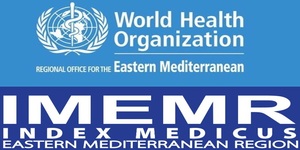Efficacy of the Health Belief Model in Enhancing Weight Loss Behaviors to Prevent Stroke among Overweight and Obese Geriatrics Homes Residents in Baghdad City
DOI:
https://doi.org/10.36321/kjns.vi20192.2237Keywords:
Stroke, Health Belief Model, Weight LossAbstract
Background: Stroke is the third leading cause of death in Iraq exceeding only by coronary heart disease and war related death. Ageing with overweight plays a critical role in predisposing people to stroke; weight loss behaviors can have profound effect in protecting seniors with obesity from stroke.
Aim of study: The study aims to assess the efficacy of the Health Belief Model in enhancing weight loss behaviors to prevent stroke among overweight and obese geriatrics homes residents in Baghdad city.
Methodology: This study used a randomized controlled trial approach. Sixty-three seniors from Baghdad geriatrics homes with BMI > 25 Kg/m2 participated in the study and randomly allocated into one of two groups, experimental (intervention group) and control (nonintervention group). A mixed design analysis of variance (ANOVA) was used to measure the change among participant's beliefs over three times (T1, T2, and T3).
Results: There was a significant improvement among participant’s beliefs about seriousness of stroke, F (2, 60)
= 8.408, P < 0.000, their susceptibility to stroke F (2, 60) = 7.774, P < 0.001, benefit of weight loss in preventing stroke F (2, 60) = 9.698, P < 0.000 and their perceived barrier to weight loss F (2, 60) = 8.431, P < 0.001 over times. However, the post-hoc procedure by using Bonferroni correction test indicated that this change in beliefs was attributed to the experimental group participants.
Conclusion: The results of this study can be clinically important, since it highlighted that elderly people’s beliefs about stroke and prevention of this serious disorder by maintaining normal body weight can be reached through systematic process of health education. As well, the study demonstrated the efficacy of the health belief model in eliciting such desired objectives.
Recommendation: This study recommend conducting additional studies to prove the efficacy of the Health Belief Model in promoting improvement upon aged people stroke related beliefs.
Downloads
Downloads
Published
How to Cite
Issue
Section
License
Copyright (c) 2020 Arkan Bahlol Naji, Mohmmed Qassim Baktash

This work is licensed under a Creative Commons Attribution 4.0 International License.













